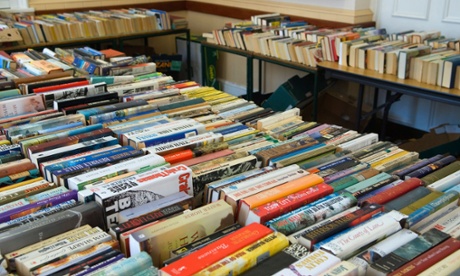
Photograph: Homer W Sykes / Alamy/Alamy
As a child growing up in the Middle East in the 70s, I clearly remember rifling through my mum’s then popular women’s magazines and chuckling away with my sister as we searched for the censoring department’s black marker pen “colourings” on nearly every page of the society and entertainment pages.
Sleeves for dresses and a thick black line above the hint of a cleavage were coloured in so heavily that at times the pages stuck together. When you finally managed to prise them apart, they came out in shreds and pieces. Job done for censoring person, but frustrating for the nosey me who wanted to see what my favourite actress had worn the week before. I was, it seems, oblivious to the immorality that I might be incurring on myself from viewing such content. Thank heavens for marker-person!
As I grew older, those black marks came to represent perversion rather than censorship. There’s something seedy about the job of rifling through a harmless household magazine looking for an implicit vice. It is rather sinister to deem a sleeveless dress a reason for the collapse of the reader’s morals.
I hadn’t yet moved back to the Middle East when Fifty Shades of Grey came out, but I’d heard that booksellers across the region were reluctant to stock it. Yet people were going crazy for it, asking friends to smuggle it back in their suitcases from the UK. The idea of a ban made people who weren’t necessarily readers want to get their hands on it, if only because some authority had told them not to. Childish? Certainly. Effective? Absolutely not! Most people, mainly women, had read it by the time all three volumes of the book finally graced the shelves of bookstores across the Middle East.
Banning publications for their political, sexual or religious content takes place all around the world, although it may feel that the Middle East is under more scrutiny than most when it comes to censorship by the governments or religious bodies. The recent unstable politics in the region as well as the sensitivities to sex and religion mean that there continues to be strong censorship. There did emerge a glimmer of hope that many bans would be eased on authors’ new works after the events of the Arab Spring and its subsequent cultural revolution. Unfortunately there still remains a long list of banned books and authors, for reasons that at times seem baffling.
Last March, a newspaper in Saudi Arabia reported that Riyadh International Book Fair had confiscated “more than 10,000 copies of 420 books” during the exhibition including works by late Palestinian poet Mahmoud Darwish, Iraqi poets Badr Shakir al-Sayyab and Abdul-Wahab al-Bayati, as well as those by Palestinian poet Muin Bseiso. The fair’s organising committee also banned a book entitled When will the Saudi Woman Drive a Car? by Abdullah al-Alami.
Fighting censorship is not new. What has changed is the location of the battlefield - thanks to the internet. The emergence of online sites, such as Kotobi.com and Jamalon.com, provide an electronic platform with, in the case of the latter, dedicated sections for banned Arabic books. By allowing users to download banned publications they are not only sending a clear message to governments regarding the futility of restricting accessibility but they also create an opportunity for authors and readers to communicate, connect and share ideas and opinions. Banning a publication more often than not cements its fame for simply, well, being forbidden. This in the real world translates into increased book sales. Sites who are clued in on this fact scramble to ensure the banned book is listed on their website by offering lucrative offers to the authors concerned.
Last month was Banned Books Week in America; an annual event that highlights the value of free and open access to literature. Although seemingly without much scope outside of the US, its message regarding the futility of censorship is universally resounding. What a terrible thing to think that a vibrant, if tumultuous, region such as the Middle East, which is striving for a brighter future, should come up against those who want the voices of its writers and storytellers suppressed or buried. If this is allowed to happen, what hope, if any, will there be for the region’s emerging generation?

